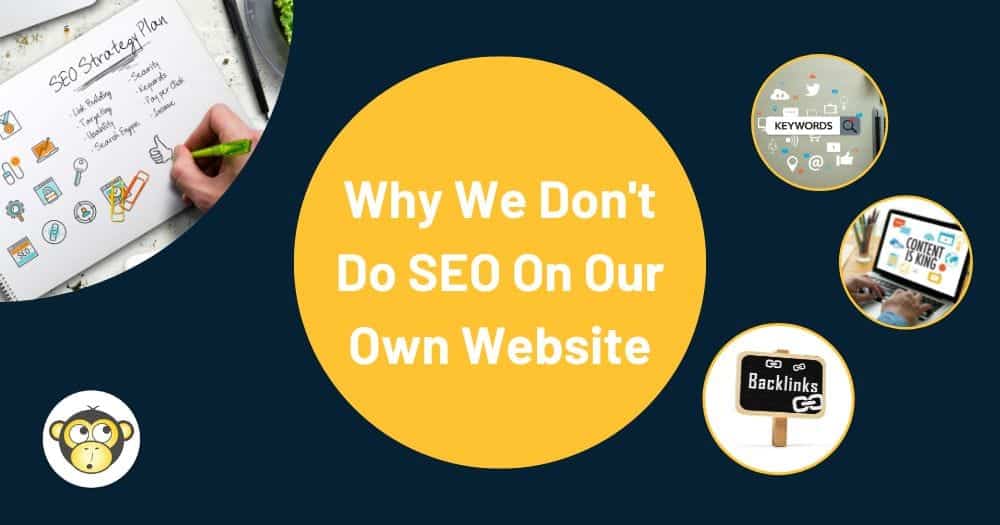When clients ask us which companies are best at search engine optimization, our first response is that most of them are crooks.
Our next comment clarifies this somewhat bold statement; although SEO is essential in online business, it doesn’t best serve clients when it’s the sole priority companies can claim. Nor does it help when it’s focused on the quantity of site visitors rather than the specific customers it should be attracting.
Case in point? Our own website.
At YellowWebMonkey, we focus on retaining our existing clients. We thrive on long-term relationships, some of which we’ve maintained over a decade. In turn, 90% of our work comes from referrals.
So, when forced to choose between serving our clients and optimizing our site to garner more views—the majority of which are unlikely to become clients—we focus on the clients we already have.
A lot of companies are convinced that keywords translate into dollars. And true, SEO contains pinpointed tactics that bring more potential consumers to websites.
But SEO doesn’t necessarily lead to a consumer’s conversion. Quality services and products do.
“How you retain, engage, and convert that traffic is what will ultimately affect your bottom line.” — iPullRank
Not All SEO is Created Equal
Fluff content may drive an outside target audience to your site. Ads may send you tons of views with a single click. Keywords may even get you onto page one. But consumers only become clients when you offer something that benefits them.
Semrush states that “If you fail to properly understand exactly who you’re targeting your SEO efforts, you’ll struggle to put together a solid strategy that drives traffic that converts.”
We are a web development company that specializes in web design, eCommerce, and website maintenance. Organic SEO and content writing are a part of that.
We’ll fight with the sleekest, sharpest tactics to make clients pleased with their organic results.
But within the site itself must be substance. It must promise exactly what it’s attracting; it doesn’t need to distract others, or itself, with random off-shoots of information.
You’ll waste precious time attracting consumers that have no intention of buying your products. And likely, even the snazziest website won’t suddenly change their minds.
Let’s say a food-themed eCommerce client loads its site with recipes: attracting a wide variety of consumers. But, if it’s trying to sell vegan products or sustainable seafood, it doesn’t help to have beef or Atlantic bluefin tuna recipes catching the eyes of non-vegans and non-sustainably minded customers.
eCommerce clients don’t ultimately care how much organic traffic they get. They care how many page visitors buy their products.
That’s why it’s far more important to have a laser focus, using keywords and content that relate specifically to the value of your product. From the get-go, your SEO is advertising your brand; and you want to project that brand with crystal clarity.
SEO Must Be Streamlined
Our hope isn’t to attract potential web development clients from the far reaches of the internet when they’re looking solely for SEO. It’s to remind current and potential clients that SEO is best as a pinpointed—not an all-encompassing—tool.
So, yes, we neglect our own increased site traffic. We’re like dedicated car mechanics; we ensure our clients’ cars run smoothly, but we don’t have the time to always worry about our own oil checks.
But it’s okay. When companies retain clients, SEO becomes increasingly irrelevant.
So, let arbitrary site traffic take the back burner. As the best match for us, we’ll help you garner the best matched clients, too.





